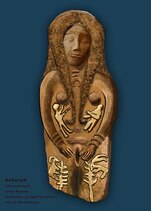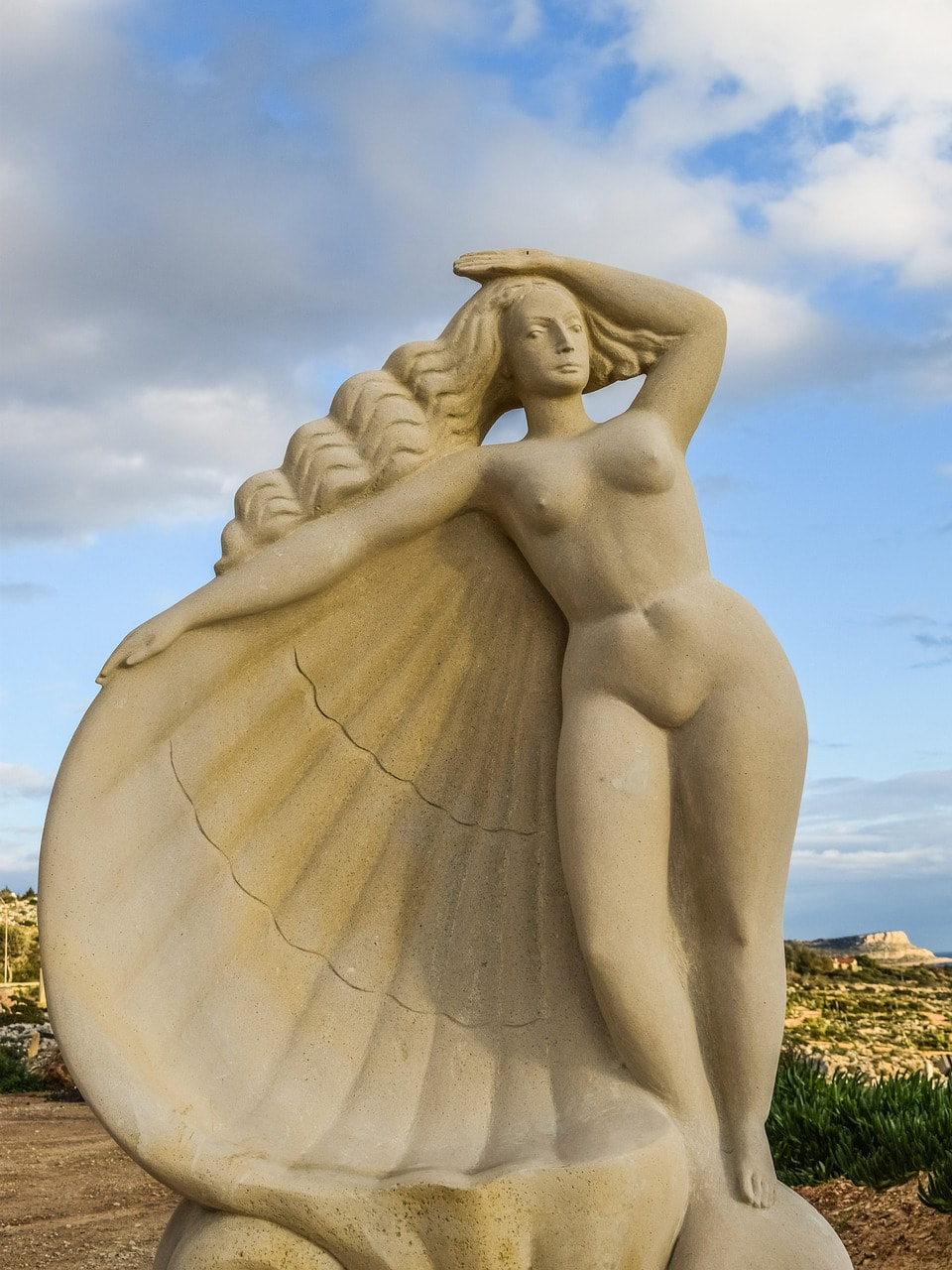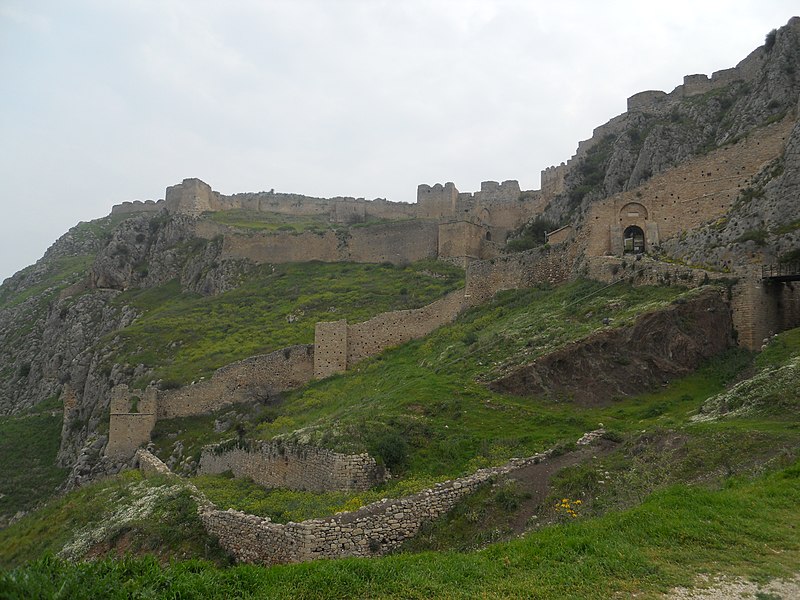| The Greek goddess of pleasure, passion, and procreation, Aphrodite (AF-rə-DY-tee), is complex and multifaceted. In The Grandmother of Time, Zsuzsanna E. Budapest notes that the name April “is derived from Aprilis, a Roman analogue of Aphrodite, the goddess of love and death.” Budapest gives voice to Aphrodite: “I am the heat in cats and dogs. . . . I am the one who makes you sigh all night and look with longing on those who have captured your fancy. . . . I am in the air, dispensing longing and ecstasy in generous measures.” She is also “queen of all organic life.” |
In Charlene Spretnak’s Lost Goddesses of Early Greece, Aphrodite “drew forth the hidden promise of life.”
Her kiss brings the morning dew, attended by Graces named Flowering, Growth, Beauty, Joy, and Radiance.
Janet and Stewart Farrar describe the goddess as “erotic, beautiful, uninhibited, desirous, desirable, unpredictable, overwhelming, and single-minded.” All attributes associated with falling in love.
Her kiss brings the morning dew, attended by Graces named Flowering, Growth, Beauty, Joy, and Radiance.
Janet and Stewart Farrar describe the goddess as “erotic, beautiful, uninhibited, desirous, desirable, unpredictable, overwhelming, and single-minded.” All attributes associated with falling in love.
| Aphrodite’s origin can be traced back to Mesopotamian and Semitic goddesses. According to the Farrars, Inanna of Sumeria became the Mesopotamian Ishtar in the second millennium, BCE. She then became Astarte to the Phonecians and western Semites. Barbara G. Walker also associates Aphrodite with the ancient Semitic goddess Asherah in The Women’s Encyclopedia of Myths and Secrets. Walker notes that Aphrodite was worshiped as a patron of the arts and culture in the city of Aphrodisias (Aisa Minor) until the Seljuk Turks conquered the city in the twelfth century, C.E. |
| According to one Greek legend, Aphrodite was born from seafoam impregnated by the dying Titan, Uranus, and floated ashore at Cyprus. In The Book of Goddess & Heroines, Patricia Monaghan suggests this story of sea birth was “an obvious description of the journey of this Near Eastern goddess to her new home in Greece.” Monaghan also notes: “The energy that Aphrodite represented, however humanly true, was almost incompatible with [Classical patriarchal] Greek culture. . . . In their attempt to assimilate the alien goddess, the Greeks converted Aphrodite into a personification of physical beauty.” |
Aphrodite was the protective deity of the ancient city-state of Corinth. Her temple at Acrocorinth sat on a promontory overlooking the city. According to the Greek geographer, Strabo, male and female temple courtesans dedicated to Aphrodite entertained worshippers, in what Monaghan called “the Near East practice of sacramental promiscuity.” Because of this sacred prostitution, Ancient Greeks warned travelers, “The voyage to Corinth is not for everyone.”
| The actual meaning and historical practice of sacred prostitution is unclear. However, that didn’t keep me from giving one of my character’s a tie to Aphrodite's temple at Acrocorinth. In Sky God’s Warrior, the Greek hero, Aietos, was given to Aphrodite’s temple as a baby (his parents were hoping to keep him hidden from lethal clan politics). |
Aietos grows up expecting to become a sacred hetaira, or temple prostitute. On the eve of his dedication to Aphrodite, his uncle discovers Aietos and takes him away. The uncle dedicates Aietos to the war god Ares instead, as part of a larger political plot, and trains Aietos to become a soldier.





 RSS Feed
RSS Feed